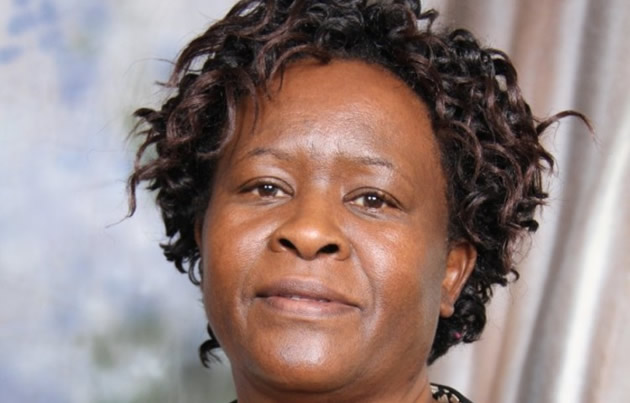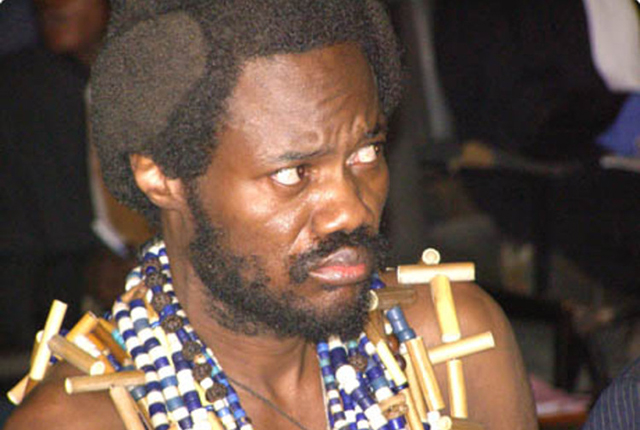Making it count because we are girls!

Hildegarde The Arena
EVERY October 11, the global community commemorates the International Day of the Girl Child. This year was no different, and the day was celebrated under the theme: Girls’ Progress = Goals’ Progress: A Global Girl Data Movement – a theme that highlights the challenges that girls face the world over.While it is everyone’s hope that in future this special day is celebrated across the gender divide, The Herald was privileged on Tuesday afternoon to host Paidamoyo Mukoyi (17), a Lower Sixth student at Epworth High School, together with her mentor — Ms Angela Machonesa, Plan International Zimbabwe’s communications manager.
Yesterday’s edition reported on Paidamoyo as the Girls Takeover Editor of The Herald. Although it was for a brief period, it made a mark, not only on her, but on the newspaper’s editorial team.
Paidamoyo articulated the need to avail space for the girl child and women in general in the media so that their voices are heard, so that they can participate in all spheres of life, without fear or favour.When she spoke to us, I saw something about her that was missing when I was also a 17-year-old girl, and a Lower Sixth student many moons ago.
We were indeed confident, but maybe the opportunities availed to today’s girl child were non-existent, and it would have been a tall order to address a newspaper Editor and his team for me, but Paidamoyo, who wants to be a lawyer did it with ease and self-assurance. How the terrain has changed, despite the myriad challenges faced by the girl child!
The writer spoke to Paidamoyo on the sidelines of the takeover, and she said she is naturally shy, but always tells God that she does not want to be shy.She said she also confesses 2 Timothy 1:7, which says, “For God has not given us a spirit of fear, but of power and of love and of a sound mind.”Paidamoyo says she also gets confidence from the word of God, and when given a task, she always tells herself that she can do it. Three weeks ago, she scooped the first prize in a public speaking competition, although she had never participated in any debate or public speaking event before.
Her grandmother is also a source of inspiration and encouragement for the teenage girl whose mother passed on, and whose father lives in the United Kingdom.But, she believes that Tuesday’s commemorations were historic since they have fulfilled her father’s dream, when he had a vision where he was pointing at her, telling people that that was his daughter.
And, her young brother who sometimes tells her that he is the father of the household is shaping her skills in the contestation of space between girls and boys.Paidamoyo appreciates the mentoring they get from women’s organisations and other stakeholders. It was in this context that the writer interviewed Ms Angela Machonesa on Plan International’s role in raising awareness in the girl child. Below is the full text of the interview:
Hildegarde: Why is Plan-International in the Girl Child programme, and for how long have you been doing it?Angela: Plan International’s global campaign on girls is called, “Because I Am a Girl (BIAAG)”, and was launched on the first ever International Day of the Girl on October 11, 2012, because we envision a world that values girls, promotes their rights and ends injustice.
We are champions of girls’ rights because since time immemorial, girls and women are among the most marginalised and discriminated against people in the world. Because I am a Girl is now a global movement to transform power relations so that girls everywhere learn, lead, decide and thrive.Hildegarde: How do you identify girl children to work with, and do you mentor them? If so, for how long?
Angela: We work at household level with girls themselves, families, and communities. Our work is informed by a rights-based approach, where all the mentioned people are active participants in making lasting improvements in their own lives.We reach the most marginalised and vulnerable girls in rural, peri-urban and now some urban communities, and these are proactively picked by communities themselves through an all-inclusive and participatory approach.
In school girls are mostly part of our on-going Girl Empowerment Movements and Child Protection Committees, which we are partnering to facilitate with different schools and other Civil Society Organisation (CSO) partners in the seven provinces where Plan International operates.Our mentorship activities through the Girl Empowerment programme are continuous. Some students become involved as soon as they enrol in secondary school until they finish A-Level. They in-turn become ambassadors and positive role models for other students, speaking out on girls’ rights.
Hildegarde: What has been the success rate since you embarked on the programme?
Angela: Through the “Because I am a Girl” global movement, and the 18+ sub-regional campaigns to end child marriages in Southern Africa, Plan Zimbabwe has managed to position itself as the leading organisation that promotes girls’ rights, end child marriage and keeping girls in school.
The campaign has been an advocacy tool to mobilise Government, civil society, mothers and fathers, traditional and religious leaders, donors, the media, boys and girls to act to ensure that girls get the assets and life skills they need to grow up protected and empowered.
Our work with men, women, boys and girls has influenced cultural transformation and gender equality, as revealed in the gender change study carried out in some districts. Change in gender relations has been noted as men and women are becoming more conscious of the difference between rights and privileges and are beginning to reap the benefits of a gender just society.
Hildegarde: You brought girls to have a feel of being in charge in the marketplace on Tuesday. Do you think that it was successful? How about girls who are far removed from what Paidamoyo experienced yesterday? How do you empower them?
Angela: Tuesday was very successful and fulfilling. Plan International is grateful to all leaders in the market place who opened spaces for girls to be heard.
For a long time, we imagined a world where girls and young women are seen and heard, occupying positions of influence within their communities and beyond.
We experienced the new wave of hope, girls stepped into the shoes of political, social and economic leaders in mass takeovers that made the invisible lives of girls — both their plight and their potential — truly visible.
Their voices were amplified beyond their usual spaces. The girls said that was a life-changing experience and excellent opportunity to represent other girls across the country. Gender equality, empowerment and promotion of girls’ rights is integrated in all our operations across the country.
Our strength has always been working in solidarity with girls themselves as active agents of their own transformation and development, sharing information, skills and helping them increase their capacities to be in the frontline in claiming their rights. With sexual and reproductive health rights information we dialogue with girls at risk of child marriage to resist it.
Girls have inherent power, we create opportunities and make use of existing spaces for girls to amplify these voices. We further strengthen networks for girls to access services and role models for motivation. Girls excel in safe spaces where their dignity and integrity is embraced. We create such spaces for them to share experiences and motivate each other.
Hildegarde: What are the challenges girls face and how do organisations like Plan International deal with them?
Angela: Girls in some parts of Zimbabwe face unique barriers to completing secondary education, and to gaining the life skills needed to transition successfully to decent work. At least one in five adolescent girls around the world is denied an education by the daily realities of poverty, conflict and discrimination.
Every day, girls are taken out of school and forced into work, or married off to strangers where they risk isolation and abuse. Missing out on school can mark the end of a girl having any choice over her own future. This isn’t fair and it isn’t right. Girls hold the power to help break the cycle of poverty.
With education, skills and the right support, girls can be a huge part of creating lasting change. Gender equality is a core objective of Plan International’s work. The goal of Plan’s “Because I Am A Girl” campaign is in building the human capital of girls through knowledge and skills, equipping, enabling and empowering girls of all ages to acquire the assets, skills and knowledge necessary to succeed in life.
Key to this are safe and quality learning environments for girls, both formal and non-formal.
Hildegarde: What recommendations do you have for organisations/companies in dealing with girl child issues?
Angela: The 2030 Agenda promises to leave no one behind. But, millions of girls and women will continue to be invisible and excluded in 2030 unless development partners, the private sector and Government have more gender-sensitive data to inform the decisions and investments that can transform girls’ lives.
In Zimbabwe, those who produce data should publish it and make it user-friendly. Those who have data should use it in ways that highlight the situation of girls and women, and those who do not have it should demand it and insist their governments live up to the commitments they have made.
In addition, men and boys are important champions of change for girls, working and nurturing them to create spaces for girls yields positive results. We all must play our part to bring visibility to the invisible and make sure every girl and woman counts and can be counted.









Comments